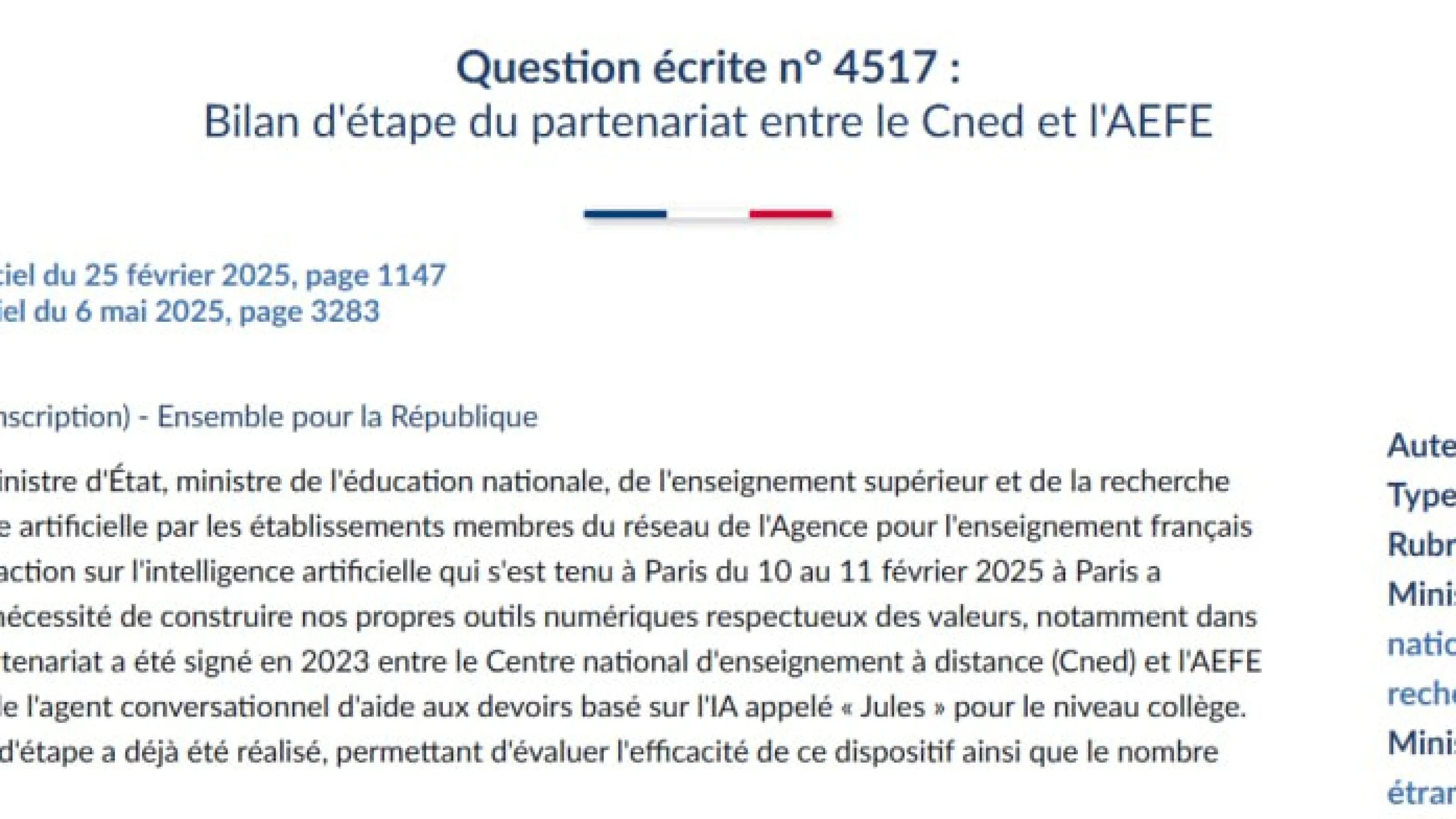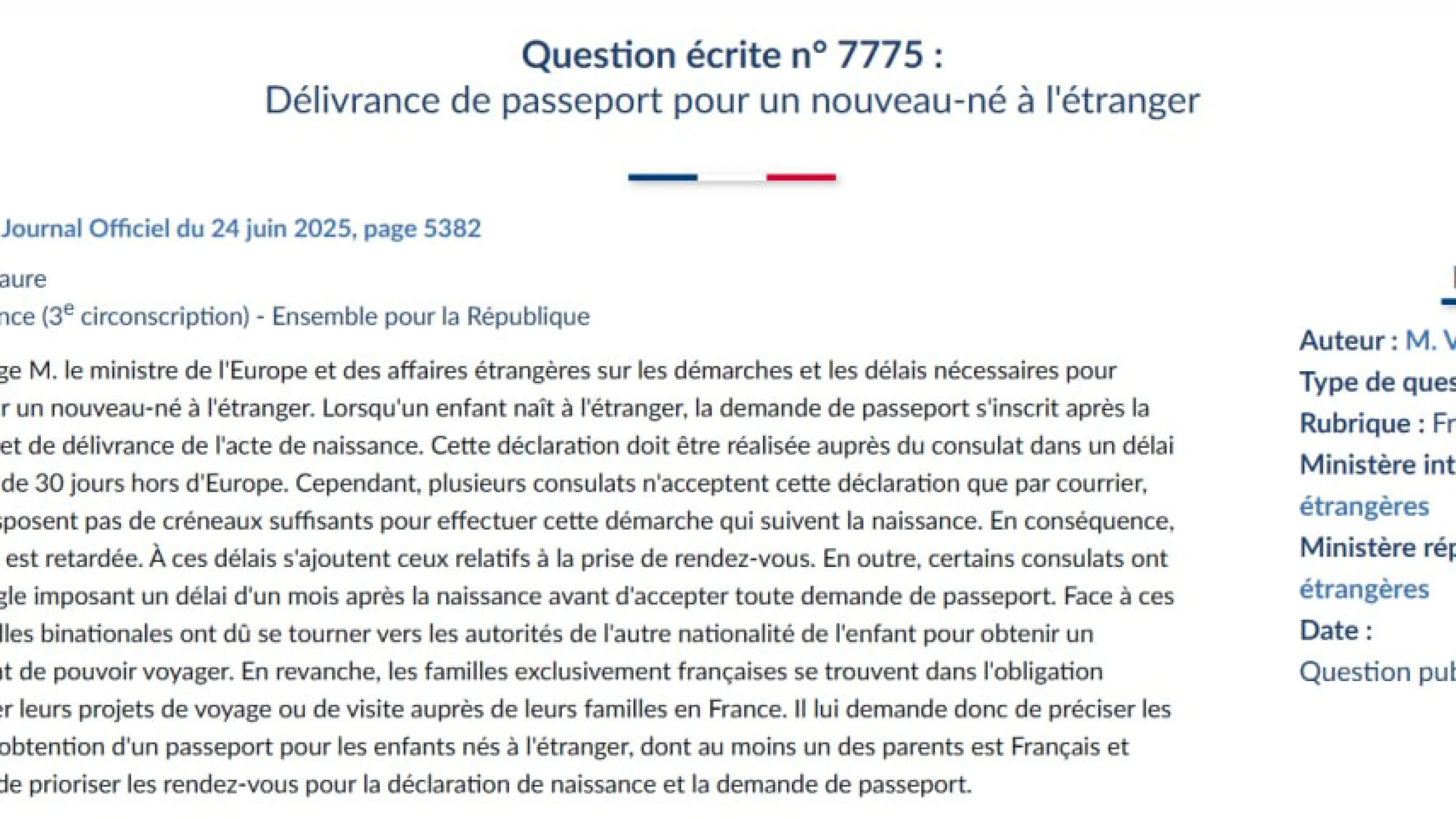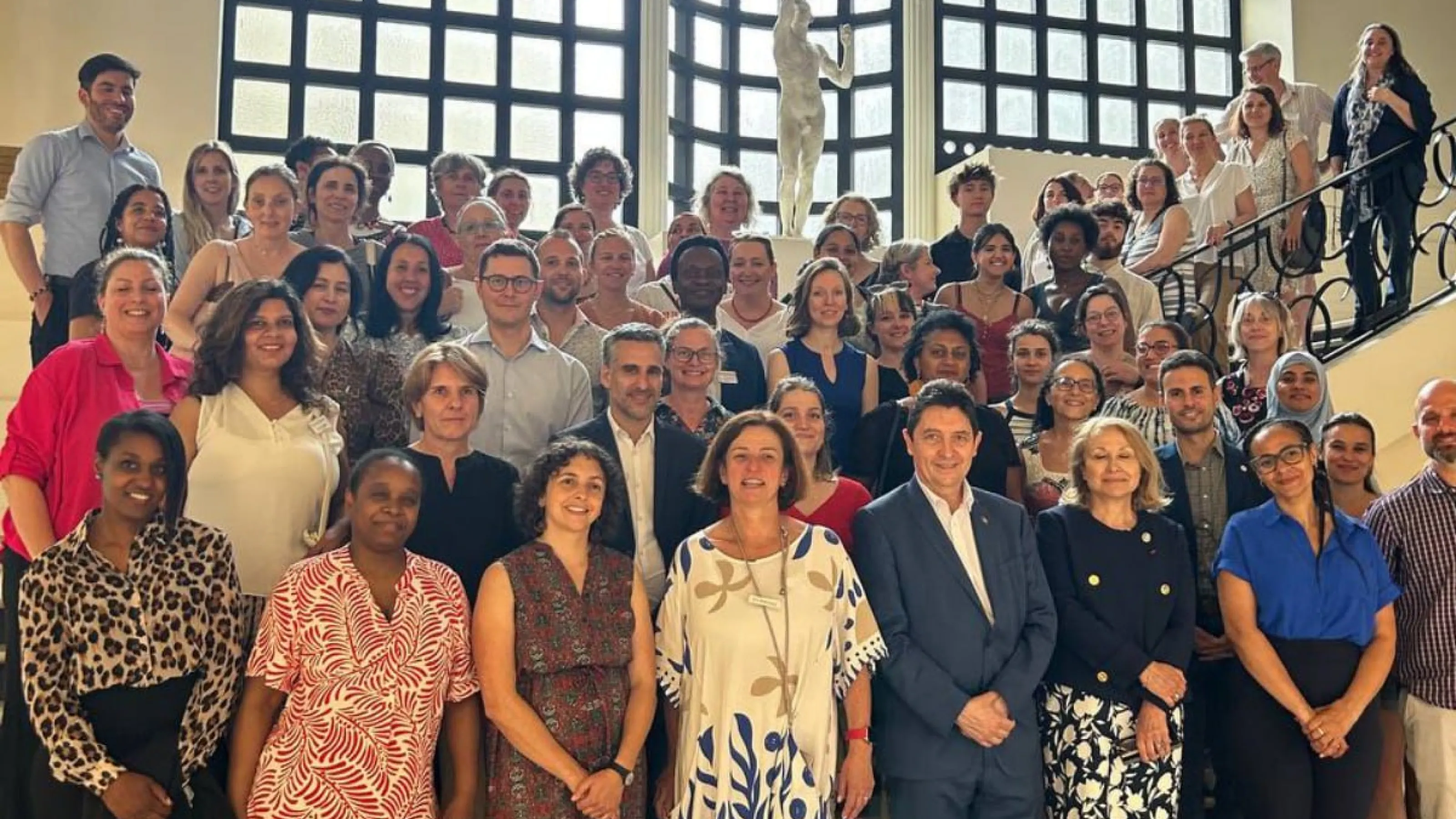Read the reply from the Minister of State, Minister for Education, Higher Education and Research to my question on the progress report on the partnership between Cned and the AEFE :
Jules is a conversational homework help agent, available to pupils from 6e to 3e, to answer any questions they may have about the syllabus and to help them complete exercises or do their homework. This personalised assistance offers content written by national education teachers and covers the French, maths, history-geography, life and earth sciences and physics-chemistry syllabuses. It's a tool that also encourages pupils to work independently and develops research and organisation skills. Initially designed for France by the Centre national d'enseignement à distance (CNED), it required specific developments before it could be deployed in the French education network abroad. After a small-scale technical testing phase, the system was deployed in autumn 2023, under an agreement signed by the two operators on 25 September 2023, accompanied by a specific communication from the Agence pour l'enseignement français à l'étranger (AEFE) in November 2023. Monthly statistics are used to monitor the take-up of this tool by students in the network. . Although the first few months following the official deployment of the tool showed that there was interest in it (90 connections in November 2023, 455 in December 2023), this momentum was not sustained over time and the number of connections fell rapidly (148 connections in January 2024, 81 in February 2024) to stabilise at around thirty connections per month today. In relation to the number of secondary school pupils in the network likely to use the tool (around 115,000), this figure is well below the initial estimates. It suggests that the tool has not found its audience or that it does not meet the expectations of pupils in French education abroad (EFE). As Jules is designed to be used completely independently by students, they choose the points on which they would like a reminder or a new explanation in order to better understand their lessons, and then feel more confident about taking part in class. This autonomy may explain the difficulty experienced by EFE students in using the tool. More broadly, this finding illustrates the difficulty of establishing the digital tools offered in partnership with the CNED in schools over the long term (following the example of Program'cours, which is also struggling to find its audience). The average time spent using the tool is 5-6 minutes per connection, and the downloadable application mode is appreciated. The subjects most frequently studied using Jules are social issues (34% of questions), mathematics (23%), life and earth sciences (15%) and French (13%). Conversely, geography (5%) and physics and chemistry (3%) are rarely consulted. On a broader level, the AEFE is considering the use of artificial intelligence (AI) in the network. The e-nov strategy, which is currently being rolled out in all the zones, offers the opportunity to develop a common AI culture within the EFE network, through three axes (harvesting, transforming, swarming). The many innovative practices for using AI that have already been implemented by headteachers, trainers and teachers can be identified, tested and shared. This will enable all members of the network to strengthen their skills in this area and diversify their practices. In addition, the integration of AI into professional practices could be the subject of transformative collective projects and be promoted as part of a process of labelling innovative establishments. In this respect, the network's schools will be able to apply for the innovative schools label designed by the AEFE in conjunction with the Ministry of National Education, Higher Education and Research (MENESR). During the seminars for school heads and primary school headmasters, speakers regularly train participants in the fundamentals of AI and its use in various administrative tasks. At the same time, the training offer drawn up for the year 2024-2025 responds to the needs expressed by the different categories of staff in the AEFE network, who wish to be trained and informed about the opportunities offered by AI. Whatever their modalities and scope, from next year onwards, training initiatives will be able to rely on the Monde IA pathway, designed by a team of expert trainers from the AEFE, under the direction of the Training and Innovation Office, in partnership with Réseau Canopé. This course will be available from the start of the new school year. Our network of trainers is also equipped with tools from the Ressourcerie numérique, including AI assistance, to generate engaging interactive activities based on cognitive science and AI. Aware of the advances, challenges and fears raised by AI, the AEFE has chosen to make it a central theme for the year 2025-2026, entitled ‘Cultivating creativity and critical thinking in the AI era’. This theme will be embodied in the various highlights of the Agency. Thus, the development of generative AI is an opportunity to strengthen our network, to make it more efficient, more attractive and to reinforce the image of France in the world, by enhancing the quality of its researchers, intellectuals, engineers, and professors. For this, the Agency has a regulatory framework, relies on a strong will and already has internal tools to consider a successful development, thought and effective in the months and years to come. In the continuity of exchanges between the AEFE and the Directorate of Educational Digital of MENESR, the Agency will ensure the use of this future sovereign AI for trainers and teachers of the network as it is already the case with the new online continuing education system "Magistère" and the next online learning platform for students "ELEA".
The link to the question and answer: https://www.assemblee-nationale.fr/dyn/17/questions/QANR5L17QE4517





